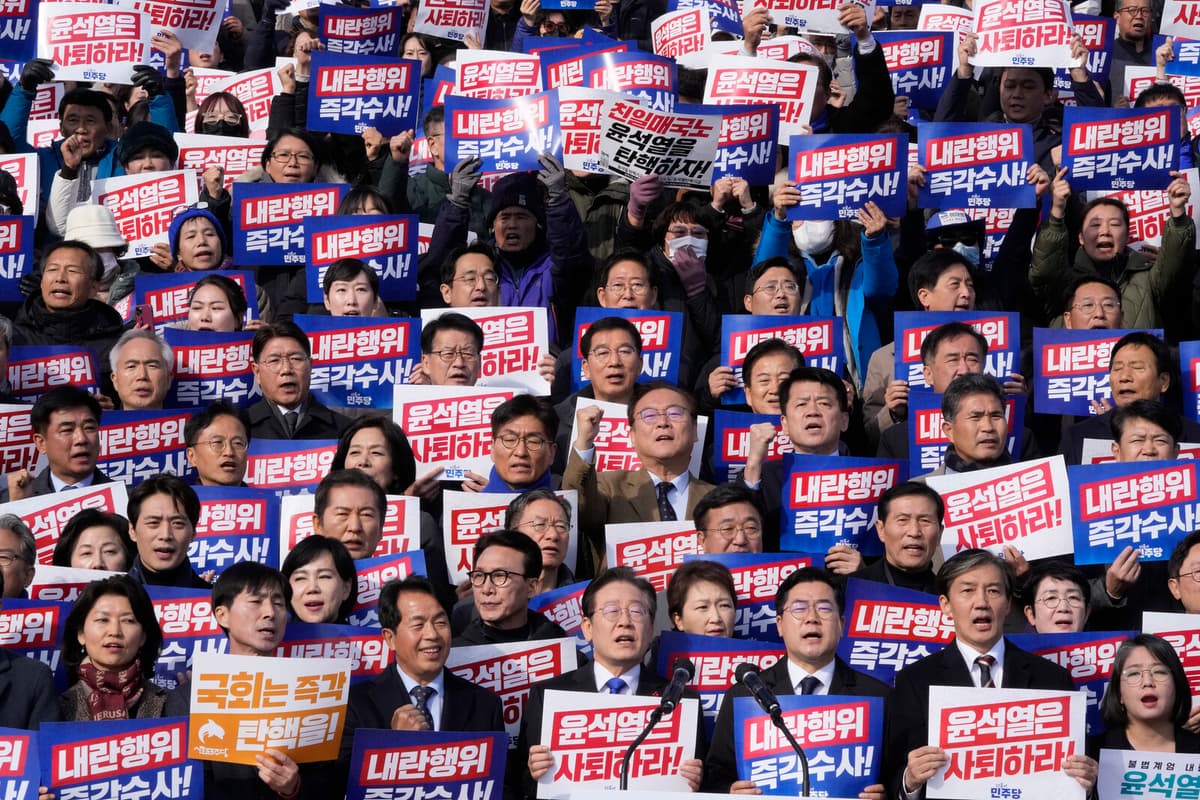With the martial law, Yoon played his last card, notes South Korea expert Josephine Ørgaard Rasmussen.
He had nothing to lose. He had neither the people's nor the government's support, she says.
The president had been hamstrung since the spring, when the opposition won a landslide victory in the country's parliamentary elections.
Since then, Yoon's minority government has barely been able to get any legislation through. It has led to a buildup of immense frustration, says Ørgaard Rasmussen, active at the think tank Institute for Security and Development Policy (ISDP).
The drop that made the cup overflow is believed to have been when the opposition blocked the government's budget last week. At the same time, Yoon has been shaken by several corruption scandals that have made his popularity plummet.
The scandals have made the people angry. Even before yesterday's incident, 58 percent of South Koreans wanted him to resign.
Shocked
Yoon has, among other things, been accused of manipulating opinion polls to both his and a party colleague's advantage ahead of the primary and parliamentary elections in 2021 and 2022.
The biggest scandal, however, concerns his wife Kim Keon-Hee, who has been accused of manipulating the stock market and receiving an expensive designer handbag. As Yoon has opposed the opposition's demands for an investigation into his wife's actions, the scandal has grown.
Josephine Ørgaard Rasmussen has lived and studied in South Korea. Her friends in the country are shocked by the developments.
They expect more from their leaders, she says.
One should know that South Korea is a young democracy. Before 1988, the country had a history of autocratic leaders who used martial law to strengthen their own power. Because of this, many South Koreans are so sad and upset now – they see martial law as part of the past, not something that happens in a modern democracy.
Test of Strength
Yoon's sudden decision to introduce martial law is seen by many analysts as a grave miscalculation that unnecessarily put South Korea's democracy, economy, and security at risk.
However, for Josephine Ørgaard Rasmussen, the opposition's and the people's reaction – and the peaceful abolition of martial law – show how strong the South Korean democracy actually is.
This incident does not mean that South Korea is collapsing, it only shows the need for change.
South Korea is a thriving democracy, whose people can be loud and persistent – but not violent.
South Korea's president Yoon Suk-Yeol, who belongs to the conservative People's Party (PPP), introduced martial law on Tuesday evening. He motivated the decision by saying that the opposition was paralyzing the government's work.
The state of emergency meant that all political activities, including in parliament, were banned. So were demonstrations and public gatherings, while the media was placed under state control.
Hours later, parliament, with the Democratic Party (DP) in the majority, voted to abolish martial law. The state of emergency was declared invalid.
Yoon Suk-Yeol later announced in a televised speech that he was lifting the state of emergency, which had lasted for about six hours.
The opposition now wants to bring the president to trial and South Korea's largest trade union has called a general strike that will continue until he resigns.






